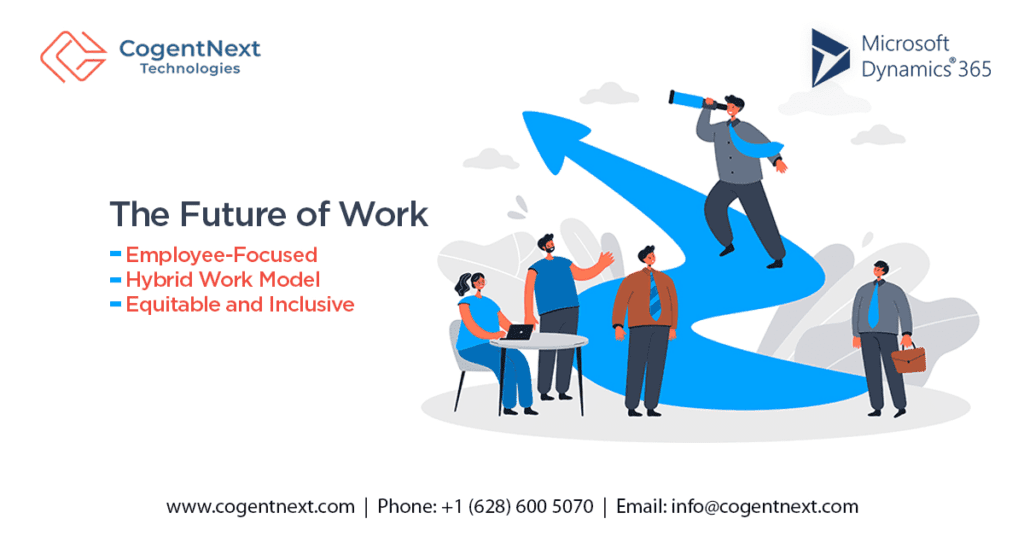
My Thoughts on the Future of Work
In the era of the Future of Work, can you remember the day the pandemic changed your workplace?
For those who worked in essential services, maybe it didn’t mean a lockdown, but it did bring a whole new set of protocols, procedures, and a flood of emotions and fears as the world they worked in changed seemingly overnight.
For many professionals, a desk and a computer at home became their new “office”. And as millions around the world had no other choice but to work from home, a startling discovery was made: It can be done.
The Remote Work Paradox
For years, management in many organizations has fought against the desires of employees to have more flexibility, freedom, and autonomy in their work lives. The COVID-19 pandemic forced everyone to admit that it is possible – and some businesses have even found it to be more productive and profitable.
That’s not to say working remotely is always easy. Not all employees are technologically inclined; many struggled to adapt to new ways of communicating, collaborating, and accomplishing their work. And even though there have been great strides made in videoconferencing, screen-sharing, file-sharing and storage services, collaborative document authoring tools, and more, there are certain aspects of being physically separated from your team that simply don’t have an electronic equivalent.
Real, face-to-face contact has an impact on the way teams collaborate. It creates rapport and trust. It demonstrates a level of commitment to the tasks at hand. Even the morning commute, the first cup of coffee at the office, and organizing your desk at the beginning of the day have a certain comfortable, centering effect on a person. Arriving at the office and leaving at the end of the day also helps one see clearly when work begins, and when to leave it behind until tomorrow.
Coping with Challenges and Finding Balance in the Future of Work

Now that the world has tasted the freedom of working remotely, few are willing to completely give it up. What has since been termed “The Great Resignation” has clearly shown that people are willing to risk a great deal to obtain a better work/life balance.
According to a recent Gartner survey, “65% of employees say the pandemic has made them rethink the place work should have in their lives.” And, “55% of employees and 65% of IT employees say that whether or not they can work flexibly will impact if they will stay in their jobs.”
Moving forward, business leaders must embrace change and adapt their corporate culture in at least three significant ways.
Become Employee-Focused. Employees today need to know that they are valued and that their needs will be addressed. Creating flexible work experiences helps by focusing on results rather than following a strict schedule. This allows workers to cope with unexpected situations in their personal lives without fear of reprisal from oversight. Promoting in-person and online collaboration helps to solidify team relationships and elevate job satisfaction. Making your workers happy has been proven to boost overall productivity – a win-win solution.
Adopt a Hybrid Work Model. With continued fear of infection combined with a sincere desire to reap the benefits of working from a home office, many today do not consider a 9 to 5, 5-day-a-week schedule a viable option anymore. Providing a hybrid work model allows teams to better take advantage of their time together in person while retaining some remote work time to either be extra-focused and productive or to find a better balance with their responsibilities at home.
Be Equitable and Inclusive. There are amazing, talented people within an organization that never get noticed. Others are never considered because of discrimination and bias – whether purposeful or unintentional. This requires a brokering of trust between unrepresented talent –especially among minority groups – and the managers responsible for mentoring them and helping everyone to advance. Talent scouting processes must be redesigned to eliminate bias. Without such change, talent supporting one organization today may be working for its competitor tomorrow.
How We Have Adapted to Change
At CogentNext, we have built our organization on an agile, inclusive, and employee-centric model. We firmly believe that having happy, dedicated team members is one of the most important factors that enable us to deliver exceptional customer experiences.
Having a hybrid service model allows us to provide the on-site attention our clients need while leveraging the talents of our team members offshore to do the heavy lifting of software implementation. This allows our team to adapt to changing circumstances and requirements with ease while keeping implementation costs very affordable.
The future of work, as I see it, is getting brighter and brighter. We hope you’ll join us on the journey.
Contact us now to learn more, and to receive a free consultation.
By Chandra Subramanian, CogentNext Technologies
